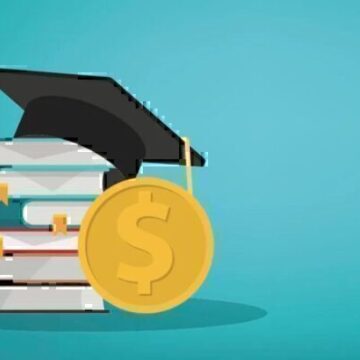A messy, cluttered house can be stressful, overwhelming, and even chaotic. The same goes for your financial health. Disorganized bills and budgets are not only stressful, but they can actually help drive you deeper into debt. Consumers with cluttered finances and sloppy financial record-keeping are more likely to miss payment deadlines, rack up fees, continue poor spending habits and save less. Organize financial records and take the time necessary to take control of your future.
So what can you do to get your financial house in order? Here are seven tips to get started today.
1. Take Inventory
Round-Up Financial Documents on Paper – Financial documents are extremely important but can easily be misplaced. Good financial recordkeeping starts with understanding clearly where you are right now. You can avoid losing documents by creating a financial file or binder where all your relevant documents are kept. This is also helpful for your beneficiaries in the case of an accident or passing, as all of the information they need will be in one designated place.
When gathering your documents, pull together any records related to your household finances. This includes account numbers, passwords, and other pertinent information to access records. You should also collect information on payments you make on a yearly or monthly basis such as life insurance policies, mortgages, and utility bills.
Gather Digital Financial Documents – As our dependence on the digital world grows day by day, some people choose to opt-out of paper documents altogether. Organize financial records, even if you rely on digital files to store your financial documents. Make sure all of your information is accessible in one, easy-to-find location. Rather than keeping them on your computer, consider using a hard drive that can be kept in a safe or lockbox.
Having some documents online and some on paper isn’t ideal and can make it harder to keep track of everything. If this is the case, consider scanning your paper documents into a digital file and subsequently shredding them, to eliminate paper storage. If you are more of a digital file person, consider having a digital backup on an external hard drive in case there is ever an issue with information stored in the cloud or on your computer.
2. Track Expenses and Bill Paying: Establish an Effective and Automated Bill-Payment System
The key to getting organized is having a system in place to pay all of your bills. This can either be online or offline. However you create your tracking system, make sure it is something you can keep up for the long term. A system is only as effective if it is used consistently.
Many banks offer bill-paying services that are set up to automatically withdraw payments from your account. However, this isn’t a completely “hands-off” method. You need to ensure your bank accounts always have enough money in them to cover the scheduled withdrawals. It is a good idea to keep an additional cushion of funds in your account to avoid any unexpected fees or charges. Before signing up for automatic bill pay, find out whether your financial institution charges additional fees for the service.
If you prefer to handle all bill payments yourself, set aside a day and time each month dedicated to paying the bills and organize financial records regularly. A structured schedule will help you stay on top of all deadlines. If you go the manual route, remember to allow time for mail delivery and possible delays.
One of the most challenging aspects of managing finances is keeping track of due dates for your various bills. This can be especially true for annual subscriptions or bills you don’t see regularly. Some recent research shows the average American is likely to have at least seven or more bills per month.
Monthly Expenses & Bills
- Water
- Energy
- Mortgage/rent
- Insurance
- Phone(s)
- Internet
- Streaming service
- Car payment
- Credit card
These payments can be due on different dates throughout the month. Not being organized can cost you extra money in fees or penalties. If you are not careful, you may even miss due dates. Late payments can negatively affect your credit score if made 30 or more days after the due date. Not actively managing your payments and keeping an eye on your credit, can make it harder to qualify for competitive loan rates and mortgages. This is just one reason why knowing how to get your finances in order can greatly benefit you.
To cut down on the risk of making a late payment — or worse, forgetting to make the payment at all — create an automated bill-paying system. For some of your bills, you’ll simply need to go
online to set up a recurring payment each month. For others, you may need to call a customer service representative or someone at another appropriate entity.
Setting up automatic bill pay can be very beneficial for both your sanity and your credit. Your credit card payment history alone accounts for 35 percent of your FICO credit score. While this makes the biggest impact, other missed payments can be detrimental as well. A shoebox – or any other box for that matter – was never intended to serve as a financial filing system. Tossing all of your receipts, records, and bills into a giant pile increases the chances you’ll forget to pay them on time. To get a better handle on your credit card debt and learn how to manage your money, access this free information from GreenPath.
To better organize your bills and financial records, consider using an online service like mint.com, or you can simply use traditional file folders or stackable drawers. Be sure to separate older financial documents from those currently due. If needed, create a spreadsheet or document with the monthly or annual due dates of each bill, and post it in a safe place you’ll see regularly.
We know in advance that every year you will have to file taxes. Throughout the year, compile all tax-related information in a “Taxes” file. Planning early can save you a lot of headaches at tax time. You don’t want to have to scramble for a year’s worth of documents in a shoebox right before filing your annual tax return.
3. Get a Handle on Debt
To get a better idea of where you stand with debt, make a list of all the people or institutions you owe money to. Although it’s a simple step, this can make a big difference in visualizing the big picture of your financial situation. Part of organizing your finances is understanding exactly where you stand. If you need help managing your debt, contact GreenPath Financial Wellness, they can help create a debt management plan to get and keep you on track.
According to a survey conducted by U.S News and World Report, one in five Americans don’t know whether they have credit card debt or not. That seems unbelievable, but according to the study, it’s true. If that sounds like you, look through your credit report to find any credit card debts or other outstanding payments.
Following the global crisis of the pandemic, each of the three bureaus is allowing consumers to access their reports each week. At the date of this blog, we know this will last until the end of 2022. Make sure you check with each bureau on their particular policies.
Once you’ve identified your debts, make a plan for repaying them. You can do this by starting with the smallest loan and working your way up or focusing on the loan with the highest interest rate first.
GreenPath Financial Service
Free Debt Counseling
Take control of your finances, get tailored guidance and a hassle-free budgeting experience. GreenPath offers personalized advice on how to manage your money.
4. Check on Credit History
You likely know the impact your credit has on helping you obtain personal loans, mortgages, and credit cards. Data from LendingTree shows only 33 percent of Americans checked their credit score in the past year. There are benefits to checking your credit beyond just qualifying for more debt. Regularly checking your report can also help you spot fraud – a problem on the rise across the globe. It can also help as you make a plan for the future if you notice your score is dropping or is lower than you expected. It’s a good idea to check your credit periodically. Make it simple, schedule it on your calendar so you don’t forget.
Have you ever wondered why credit matters? Understanding your credit is much easier than you may think. Paying attention to it and building it with purpose has its benefits. Your credit can help with everything from buying a car, a house, or even getting a job. You read that right, even getting a job. That little three-digit number can be important as you establish a solid financial foundation for yourself and your family.
A good credit score can put you on a productive path to opportunities those with less than stellar credit can access. You can actually keep more money in your pocket by having good credit. Lower interest rates, better loan terms, and faster approvals all come with a better score. Your credit score is a snapshot of how you handle your money. The higher it is, the more likely a lender is to want to do business with you.
If you see anything on your credit report that looks wrong, you can dispute those items with the three credit bureaus. You can also work directly with the lender or creditor involved to investigate and correct any incorrect information. If you spot something that looks suspicious or fraudulent, report it to the Federal Trade Commission. To organize your financial documents, you have to also take an honest look at your credit history.
5. Assess Your Goals
Setting financial goals is important as you work to become more financially secure. When working to organize your finances, it helps to know where you’re headed- what are your goals. Some people will set personal and financial goals at the beginning of the year. There is something about the change on the calendar that sparks a desire to get our lives on track.
To make real progress, it helps to have a plan. Is there something you hope to achieve financially in the near future like buying a car, getting ready to buy a new home, saving for some other large purchase? It is not enough to just hope, you have to get ready plans. Creating a plan can greatly increase the likelihood of meeting your goal.
It’s vitally important to track and document how much money is coming in, and how much money is going out. This will help you to identify and adjust your monthly spending habits in order to meet your financial goals.
Once your goals are set, the process doesn’t end there. This is not something you create and never look at again. Part of staying organized financially is staying on top of financial recordkeeping and regularly assessing your progress and making adjustments along the way.
Setting and reaching short- and long-term money goals can give you a confidence boost and solid foundational knowledge to achieve larger goals. What would you like to accomplish in the next year, five years, or even ten years? Anything is possible, but it all begins with setting goals and following through. Make your financial health a priority the same way you should for your physical wellbeing.
Saving to establish an emergency fund, paying down high-interest debt like credit cards are actions you can start on today to set yourself up to reach even bigger goals for your future.
Goals don’t all have to be so serious. Write down money goals for travel, special purchases, or an event like a wedding.
6. Explore Financial Apps
We all live in a world where technology dominates many aspects of our lives. If you want to get something done in life, there is likely an app to help. The same is true for organizing your personal finances. There is no shortage of finance apps to organize your financial documents, income, create budgets, and track spending.
The best financial apps give you maximum control over your money and are flexible enough to adapt to you and your personal goals.
It’s best to do your research to find out which app will work best for your situation. Before signing up for any account, you also want to be aware of fees for using the service and have securities in place to protect your money.
Useful Financial Apps
7. Schedule Regular Housekeeping
To organize your financial documents takes planning and action. To be effective, you have to resist thinking of it as a “one and done” scenario. Even after pulling everything together, you have to continually review and adjust your plans to stay on top of things
For instance, take care of seemingly little things. Set aside time for a shredding session each year. Shredding old documents will help significantly cut down on clutter. As a general rule, ATM or credit card receipts can be shredded if they match your monthly statement and if they aren’t needed for tax purposes.
Paycheck stubs aren’t needed once you get your annual W-2. Tax returns older than seven years can be shredded (just check with your accountant first). Also, you should also shred old credit card and loan offers.
It’s also good to plan a recurring date to conduct a full financial check-in to help you stay organized. When should you do this? It is completely up to you – whatever best fits your lifestyle and financial situation. To avoid forgetting to do these check-ins, mark them in a personal planner or set reminders in your phone.
Perform Regular Checkups of Your Portfolio
- What’s happening with your investments?
- Are you achieving financial goals and any changes in your life? (a move, job change, changes in family, etc)
- Are you sticking to your budget, or does it need to be updated?
- Reviewing your debt levels, credit score, etc.
Anyone Who Contacts GreenPath
Will Receive a Free Counseling Session
Staying organized and on top of financial recordkeeping are really important steps in managing your financial health. If you need help creating a budget, understanding your credit, or getting your finances organized, contact GreenPath.
Everyone receives an initial free financial counseling session with certified counselors who lend an emphatic ear, look at your entire financial picture and help you develop a personalized plan that works for you and your particular situation – actively managing your financial health, reducing financial stress and keeping you on track for your bright future.
GreenPath Financial Service
GreenPath, A Financial Resource
If you’re interested in building healthy financial habits, paying down debt, or saving for what matters most, take a look at these free financial tools.










